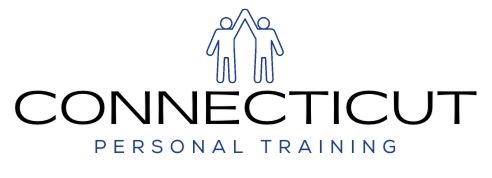Ever heard of Gluteal Amnesia?
What is it, and why is it important?
We asked our personal trainer in West Hartford Connecticut for some information, and he was happy to elaborate.
“Gluteal amnesia is the term used to describe the lack of activation of one of the gluteal muscles,” said our West Hartford Connecticut personal trainer.
He continued, “While most people think of the ‘butt’ as being one body part, it is actually made up of multiple separate gluteal muscles. They connect to the pelvis, and are responsible for external rotation, extension, and abduction of the hip.”
He told us that what is important to note here is that, although they are separate muscles, they connect to, and move, the same bon: the pelvis.
While symmetric training and hypertrophy of muscles are always desired, it takes careful attention to detail to ensure this happens. Whereas having two different-sized biceps may not be desired, for example, the biggest drawback to that will be the aesthetics. With gluteal amnesia, there is an overactive and underactive gluteal muscle that will cause one to be noticeably bigger and stronger than the other.
Our personal trainer in West Hartford Connecticut, says, “the reason why this is more significant as the bicep example is because of the pelvis. Function of the pelvis is important here. When the glute is pulling harder on the pelvis, it will cause it to tilt and cause low back pain.”
He explains that this laterally tilted pelvis will have negative effects on the whole hip complex, such as: tightened hip flexors and tighter hamstrings.
“When there is an underactive gluteal muscle, the other hip extensors on that side will take over (i.e. the hamstring),” continues our West Hartford Connecticut personal trainer.
There are multiple causes of Gluteal Amnesia, some of which include: overactive hip flexors; too many quadricep-dominant exercises; poor posture and sitting position; improper exercise form; tight low back/hip flexors; and others.
“What’s important to know,” explains our West Hartford Connecticut personal trainer,”
…is that once gluteal amnesia has occurred, a person can’t simply do ‘glute work’ to fix the problem. When the glute has turned off, any type of bilateral exercise will make the problem worse.”
He says that It will ensure that the opposite glute and the same side hamstring keep getting stronger, while the problem glute keeps getting a bigger deficit in strength and size.
So how does one correct gluteal amnesia?
“The first is to try and figure out what is causing the gluteal amnesia,” says our West Hartford Connecticut personal trainer. He suggests finding the root of the problem by asking: Is it overactive hip flexors? Is it improper form? Is it a strength deficit?
Now, at the point where gluteal amnesia is a noticeable issue, all of these problems may present themselves, and it will be difficult to determine if these are causes or side effects of the issue. The best strategy is to target the easiest issues to correct first, while working on the longer-termed corrections.
Our personal trainer in West Hartford Connecticut says, “You can start with compensations and improper form of exercises. Using corrective movement patterns and neuromuscular corrections, it will be easier to change any form discrepancies, such as weight shifts and improper loading.”
He continues, “Next would be to start working on any tight musculature. Foam rolling and stretching of the hip flexors, hamstrings and overactive glute. Getting these muscles to relax and loosen will take some of the pressure off the pelvis.”
“Finally,” suggests our personal trainer in West Hartford Connecticut, “you can start working on strengthening the core and underactive glute. Using unilateral exercises will help strengthen the weaker glute. It is imperative that you train both sides equally and train to the weaker side. What this means is that, even though you are doing one-sided exercises and one glute is stronger than the other, you do not want to use more weight on the ‘stronger side’ even if it’ll be easier on that side. You want to strengthen the weaker side while maintaining the strong side. This will eventually close the strength deficit.”
Combining all of these strategies should alleviate the effects and eventually correct the gluteal amnesia.
Interested in learning about the evils of sugar? Your CT Personal Trainer in on it!



